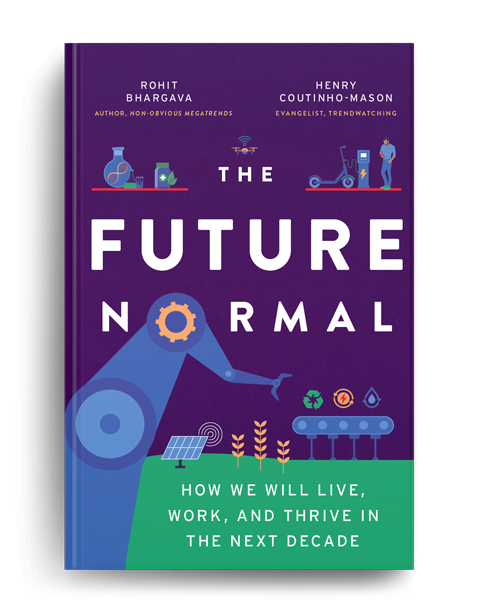The truth isn't pretty – but it is time we owned up to it. Most people who work in marketing would make terrible customer service people. Our job, inherently, is to influence consumers in some way to take an action that positively impacts our company. We want them to buy from us, or talk about our products, or join our newsletters. Even when marketing is more of a dialogue and offers a great authentic conversation – the function is still not the same as great customer service.
Customer care, as I'm frequently reminded anytime I participate in an event with SOCAP, the Global Community of Relationship Experts. Today at the SOCAP annual convention, I interviewed Craig Newmark from Craigslist and then moderated a panel with Bryan Rhoads from Intel, Frank Eliason from Citi (formerly Comcast) and Helen Horsham-Bertels from Starwood Hotels. Our topics ranged from how Craigslist creates a unique focus on customer care led by their introverted Founder to what the future of customer care in a social media world may be.
Through the discussion, we touched on the frequent tension between marketing and customer care as opposing forces – and Helen shared an interesting insight about social media … that it may be the bridge that starts to finally bring the functions of marketing and customer care closer together. Hardly anyone would dispute that providing great customer care also results in excellent marketing and PR. The experience customers have with your brand when they have a question or issue can fundamentally shape their perceptions in the long term.
For marketers for whom this world has gotten much closer as a result of social media, here are a few lessons that I learned during our discussions today that may help all of us get better at customer care:
- Focus on resolution. In the customer care world, most organizations use a very tangible structure for understanding and resolving customer questions and problems. Their entire goal is resolution, and NOT conversion. Facts don't really matter, what matters is that a customer wants to feel heard and is ultimately looking for some type of resolution and your job is to find one that works for them but is also fair to your company.
- Bring in the experts. There are people paid in most companies to address customer issues and many problems occur when members of a marketing team find these issues online and then try to address them on their own. A necessity for your team is to understand what the escalation process is and get better about passing along issues and questions that you find to the appropriate team member. Not only are they paid to do it, but they probably have more tools and skills at their disposal to do a better job at it than you could.
- Have more empathy. One of the most telling moments for me was when I sat down to lunch a bit late with 8 people at a round table, most of whom had already finished their lunch. More than half of them, without even knowing who I was, instantly looked around for the waiter to let him know that I had sat down and needed food. Showing empathy is just part of the personality of a good customer care person, and is a skill that you can easily perform a marketing role without. We need to have more of it.
For more, see my related post: 5 Things Customer Care Teams Wish Marketers Did Differently























I would have to disagree with that sentiment. Perhaps it’s my experience and the marketers I’m connected to and worked with, but I feel that we rock customer support.
Resolution is our focus. We’re not afraid to admit when we don’t know something, and actually do seek expert opinions. And lastly, marketers that entered this profession right before blogs and social networks made a blip on a radar are more in tune with their customers and sensitive to their feedback and sentiment. As a result, as you pointed out, social media did and still is bringing marketers much closer to their customers.
In fact, I’ve come across instances where marketers trained CSRs on how to deliver outstanding support and educate them how all this ties to the overall brand experience.
@Andrei – Thanks for your comment. I wish that I had seen more situations like the one you described, and I agree that when that happens it’s an ideal situation. Unfortunately, for every one of those cases, there seems to be five others of marketers who are uninformed about the importance of this sensitivity that you describe and are focused too much on their own promotions, messages and research. The refrain of a customer “not being part of our target market” is used too often to justify irrelevant marketing. Let’s hope that we are indeed headed towards a future where the majority of marketers are more like what you describe. I agree there are some who do this well. I hope they, like you, take the time to share these insights with everyone else much more often.
Marketing can be defined as ‘whatever you do to promote and grow your business’ including market research, advertising, publicity, sales, merchandising and distribution. With traditional marketing techniques all of these things are delivered in print format or in person. Internet marketing however, uses the power of online networks and interactive media to reach your marketing objectives…no paper, no telephone calls, no in person appearances.
It is true that today’s businesses are expected to show their human faces and engage with customers through social media. Your advice to bring in experts is a good one, however, to be able to listen and engage with today’s social media savvy customer, traditional methods of customer service need to evolve. This responsibility should be given to a community manager who is employed specifically for his/her communication skills and new media expertise. Not only can community managers listen to customer concerns, they are connected to employees at all levels and can direct messages of importance to the appropriate people and ensure these messages are answered. They also build and maintain long lasting relationships through new media and can therefore be extremely valuable in brand building, customer service and damage control. Do you think that hiring a community manager is a good idea for business, or by “expert” do you imply hiring traditional customer service representatives?
I think there’s still a big debate going on between who should respond to customer service complaints on SM channels, as well as how to handle them.
While everyone from the marketing team to the PR team to the social media team should get together to solve this problem the best they, it’s often not possible.
What do you recommend?
@Worob
PR at Sunrise
Prior to having an official ‘marketing’ job title, I spent numerous years in customer service including working the front desk at a few hotels so I have a unique background that I have taken with me throughout my career. The biggest struggle for me sometimes is to gain acceptance from sales and other marketers to have a customer service mentality. We are all hungry for leads, and good ones at that, that we lose focus on providing great stuff and resort to pushing the product.
As we place more and more emphasis on social media and actually having a helpful conversation with our communities (whether they buy from us or not,) I hope this will change the way we think about our efforts. And for those nervous about less leads…I would point to the countless organizations who have demonstrated that leads will come if you give them a reason to trust you first (Hubspot is my favorite example).
@Alexandra – This is a brilliant comment and I wish I had highlighted the important role of the community manager in this post as a potential part of this solution that does excellently bridge the roles of marketing and customer service together. You are totally right that when companies take this digitally savvy approach rather than just relying on traditional customer service, they can have a much bigger impact and service their customers far better in the long term.
@Worob – The best solution, I think, is to find a way of getting marketing teams better at understanding what consumers really want when they start to engage in social channels. In some cases, it is a conversation with the brand, in which case I think that marketing teams should train their members and become better at having this dialogue. When it comes to specific resolution of issues, there needs to be a good handoff path where those marketing teams can bring in the customer service teams who are trained to deal with these issues. The challenge is the handoff point and the collaboration between these teams – and that is where the bulk of the focus on fixing the process should go.
@Christina – I hope so too, and thanks for the comment. Love your point that the “leads will come if you give them a reason to trust you first.” Amen.
Coming from a marketing background, I have always been taught that the customer service department and the marketing department HAD to work pretty closely in order to better understand the customers. Great customer service can lead to great marketing and great marketing can help customer service keep their jobs much simpler and hassle free. Take Zappos for instance, I cannot actively think of any advertisement that I’ve seen for Zappos, but I sure can think of numerous times that I’ve read an article on Zappos and the importance they put on customer service. In this case, the customer service reps are a huge part of the Zappos marketing scheme. Good service leads to happy returning customers who will refer your company to their friends. Understanding that every customer is trying to fulfill some kind of want or desire, it is easy to understand that every customer wants to feel appreciated, and customer appreciation can very easily be shown through great customer service.
Resolution is our focus. We’re not afraid to admit when we don’t know something, and actually do seek expert opinions. And lastly, marketers that entered this profession right before blogs and social networks made a blip on a radar are more in tune with their customers and sensitive to their feedback and sentiment. As a result, as you pointed out, social media did and still is bringing marketers much closer to their customers.
You are spot on in your observations. I’m glad you didn’t just use this as a call out, but rather as a way to help. Great tips also.
Focusing on the resolution is a huge aspect of customer service, being able to satisfy the customer need can be looked at as a marketing opportunity also. When you resolve a customer issue positively, the customer is more apt to spread the word of the great service the received and can convert new customers for you.
Hi! This is such a great article and I am sure a lot of entrepreneurs are going to benefit from this. There has been many mistakes in the business industry and it is an essential that many are sharing their own ideas for people to learn. I am Donald Brownlie Fleming, an Australian Entrepreneur, ebook author (Master Selling by Donald Brownlie Fleming) and a Philanthropist. If you have time, maybe you can visit me too:
https://en.wikipedia.org/wiki/My_ATM